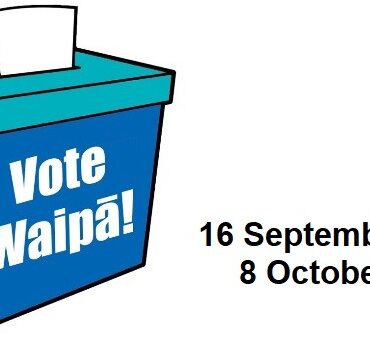
People on the Māori roll for general elections have been automatically switched to Māori ward rolls for October’s local body elections.
But no one has thought to actually tell them.
The decision impacts on 35 electorates where Māori wards have been established following a tsunami of yes votes by district councils, including Waipā and Waikato, last year.
Investigations by Good Local Media this week show that while the creation of new rolls for Māori wards is explained in documents, there has been no effort made to actually tell voters they are on the new rolls. It appears the expectation is that voters will work it out themselves by going to government websites.
The Electoral Commission’s communication with Māori roll voters confirms what parliamentary electorate – Hauraki Waikato in Waipā’s case – they are enrolled in.
“You are enrolled on the Māori roll in the Hauraki-Waikato electorate” is not the same as “you are enrolled in the Māori ward in the Waipā district council elections” – but for Waipā voters it is.
We asked Māori commentators, a former and current district councillor and Māori leaders whether they aware of the switch. Only one, a regional council candidate, was aware of it.
While aware that only voters on the Māori electoral roll can vote in the new seat, Bill Harris, who has announced he will stand in the Māori Ward in Waipā, did not think the specifics had been properly advertised to voters.
The irony is that the introduction of Māori wards was hotly contested as being unfair. But now, in some districts, Māori roll voters will get to vote for one candidate – none if there is just one candidate – while those on the general roll will be able to select three four or five candidates for a ward in the district.
Rolls are locked in for this election – but under legislation currently going through Parliament, Māori will be able to switch roles next year, rather than in 2024. The Bill is due to be reported back to the House in November.
Yesterday the Electoral Commission told The News local elections were run by each local authority “and they promote the elections in their information and local advertising”.
It said the Electoral Commission’s role in local elections was to provide councils with up-to-date electoral roll information for their elections.
Local Government Minister Nanaia Mahuta’s office said individual councils had a role to play in publicising their own elections, especially where the representation structure has changed.










